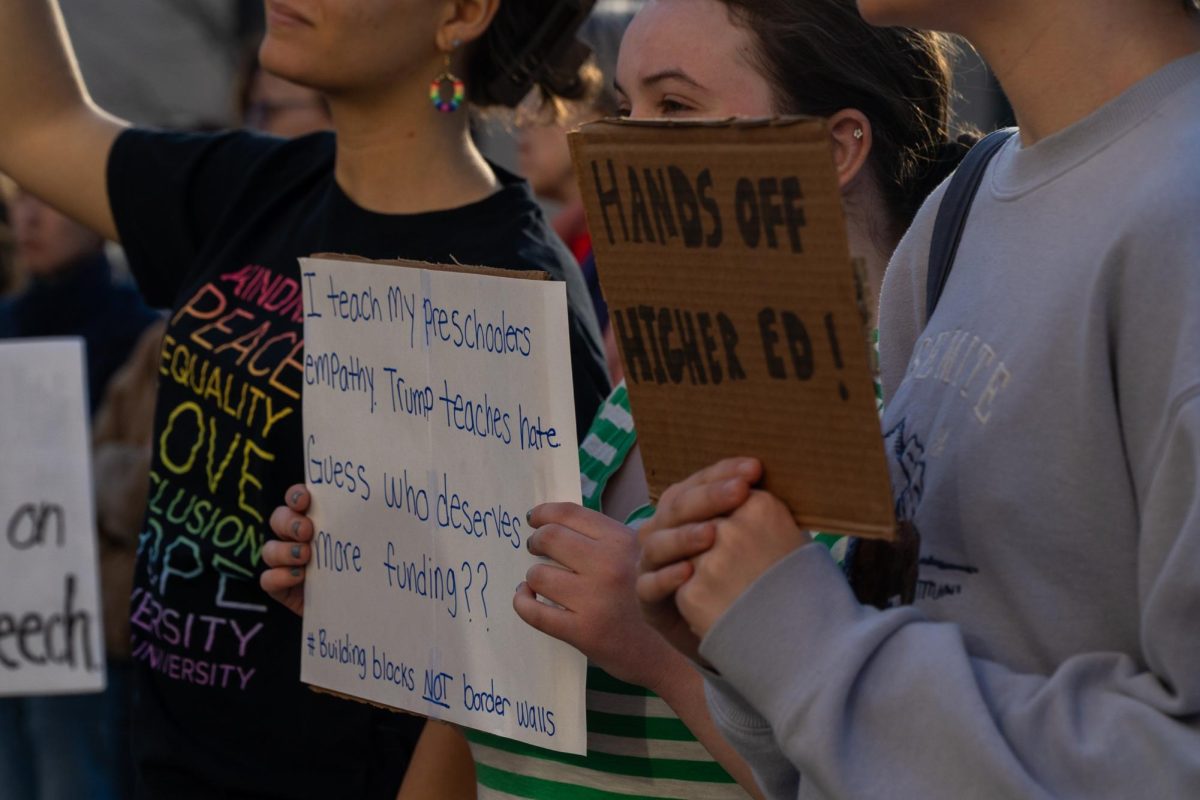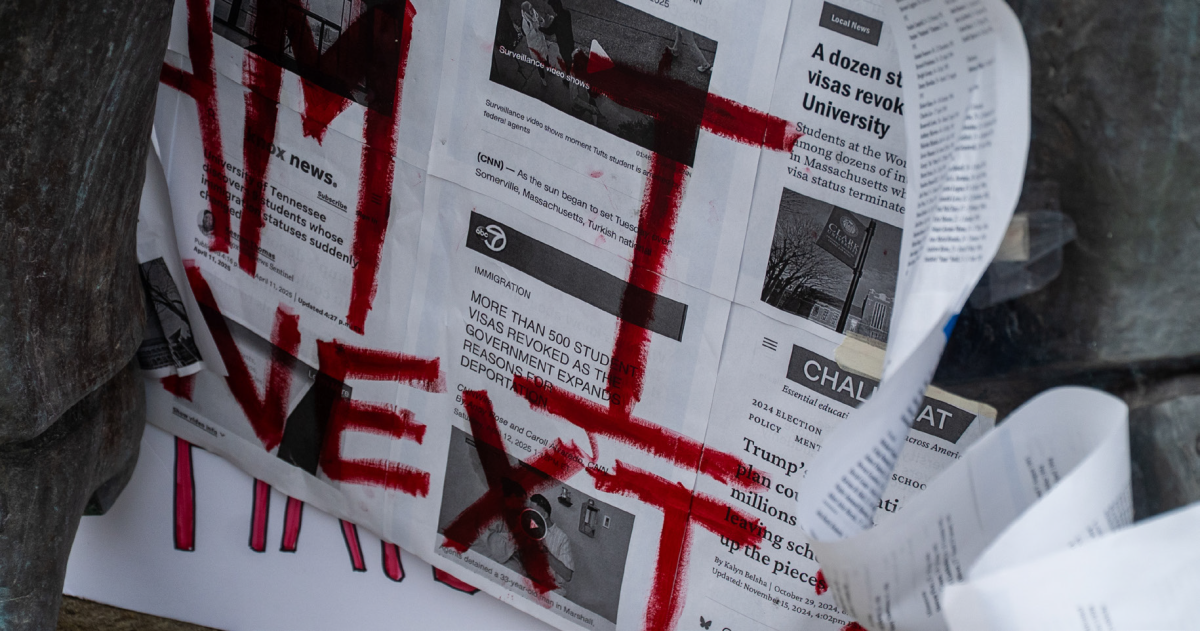Clark has a new dean. On Aug. 20, the Provost’s Office sent an email announcing Danielle Morgan Acosta’s official promotion to Assistant Provost and Dean of Student Success. Here, Dean Acosta sheds some light on the Administration’s priorities for the future of Clark’s student body.
Q: What are you excited about as Dean? Is there anything you’re really looking forward to creating?
A: I’m excited about everything, honestly. I think it’s just such an honor to be able to be a part of students’ lives during this time; there’s just so much happening.
To be able to help students learn, grow, and think about the change that they want to create in the world or on campus and how we can go about doing that effectively, is really exciting to me.
And I’m excited about where Clark is right now. I think the launch of the climate school, the launch of the Clark experience, are going to be really beneficial for students and elevate some things, particularly the experiential learning, you all do in and outside of the classroom.
Q: Is there any feedback from students that you would like to start working towards?
A: What I’ve been looking at this summer is the reasons why students tell us they leave Clark or what about Clark they’re not particularly fond of.
Most recently, I’ve gotten a lot of feedback that people think there’s too many clubs. So this notion that there’s too many events and there’s not enough events. There’s nothing to do and there’s too many things to do.
There’s also a lot of feedback that things are confusing and that we have some communication problems. So I’m intrigued to through the ways that we can manage that better.
Q: Do you have any ideas to connect with the student body to hear more about what students think?
A: We’re gonna do some student community forums, probably at least two a semester, and my hope is that we’ll be able to make those a bit more interactive.
And I’d love to go meet with students, or to go to clubs, if that’s something that people want. Then I’ll also keep a close connection with student council, which I’ve advised over the past couple of years—I won’t continue to advise them—but I still want to be active in that space and other spaces to hear what’s going on.
I think everyone at Clark, administration, faculty, students, staff wants to do good work and cares about Clark and cares about the students, but they have different areas of expertise and different ways they go about that.
Q: How do you plan to communicate any new shifts and changes within Clark to the student body?
A: One of the things I noticed this summer is that there’s a lot of misinformation out there. So what I’m thinking about is how can we help share more information, but also some of the reasoning behind them and some of the impacts.
So I think, for example, there’s been some changes in the division of student success, SLP, and a few different departments who have become SLICE, but the service to students in terms of who they go to for certain things hasn’t really changed.
A lot of what is happening are shifts to structure and updates to academics in a way that’s going to better serve students.
And sometimes, shifts to systems are not bad change, but we might be scared of the change because we’re not fully aware of what’s going on. So we’ve got to break that down in some different ways.
Q: Are there any projects you worked on with [former] Dean K you want to continue building?
A: I think things that students might not see are some of the changes I’m making with the Student Success Division in terms of these focuses on our student learning competencies, a focus on assessment, and then really making sure the programs and services we are providing to students are working, and that students want and need them.
I think we’ve changed some processes and updated some things this summer that I’m hoping we’ll be beneficial for students and that we can be more transparent, like the Code of Conduct got reviewed. We’re thinking about what we need to review in the student guides for next year.
I also really want to make sure we’re focusing on civic education and community engagement and some of those pieces. And so we have some new team members really working on what it’s going to look like. Not just voting, but what are the other ways we’re going about doing some of that work.
And then how are we continuing and enhancing the ways that we infuse inclusion into our work? So we’re working on some groups that are focused on our first-gen students, on student accessibility and how we educate students and others about universal design principles and including those.
Q: How will you continue to focus on diversity and inclusion with the incoming attacks on universities and DEI initiatives from the current Trump administration?
A: The priority of the Division of Student Success and the university is to make sure that we’re supporting students through their unique needs.
We need to think about how we are doing that in light of what we are told we can and can’t do, but that priority isn’t going away.
I’ve worked in Florida which also had very similar rules. And during that time, I advised and worked with all of the identity-based student organizations, so I know that there’s some opportunities for us to advance this work.
What I’m also concerned about is what the rhetoric is actually doing to our students more globally. How does it impact how we show up every day, how we feel about ourselves. And where are the opportunities for us to cultivate growth, healing and the importance of community?
I talked to some of our clubs yesterday, they said they’re really focused on community and helping people feel good about who they are and where they exist. And so what is the work—not only through process and policy and structure—but making people feel, at least in some places, they can feel safe, validated and heard.
And I think that that’s a lot of our work too. How do we create a community of care that really values people and knows we have differences, but we believe in people’s humanity enough to want to be in relationship with them.


